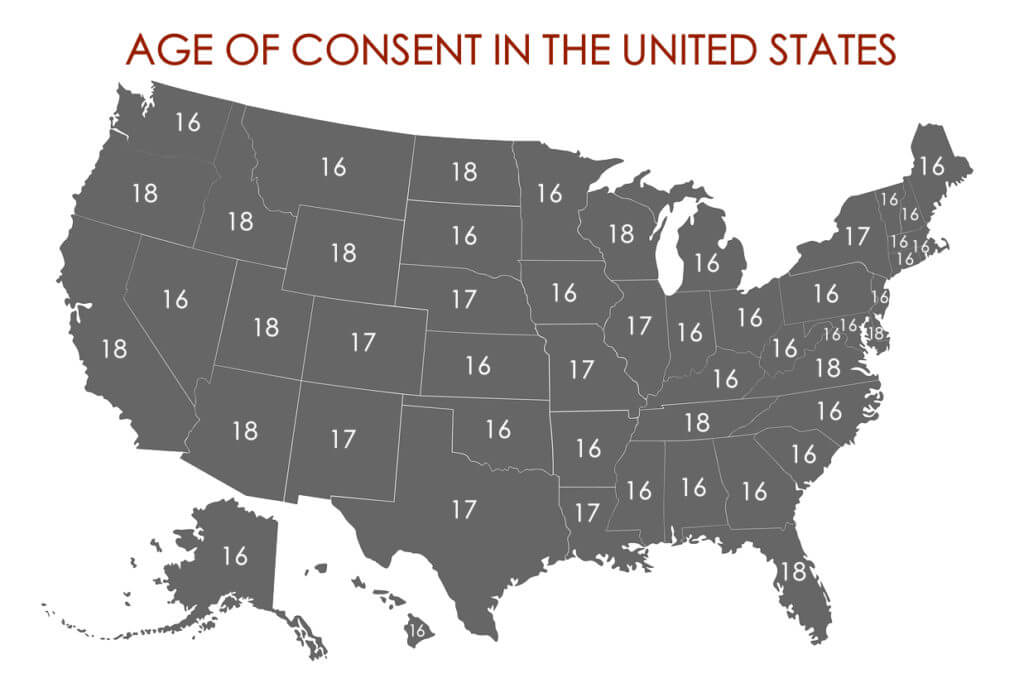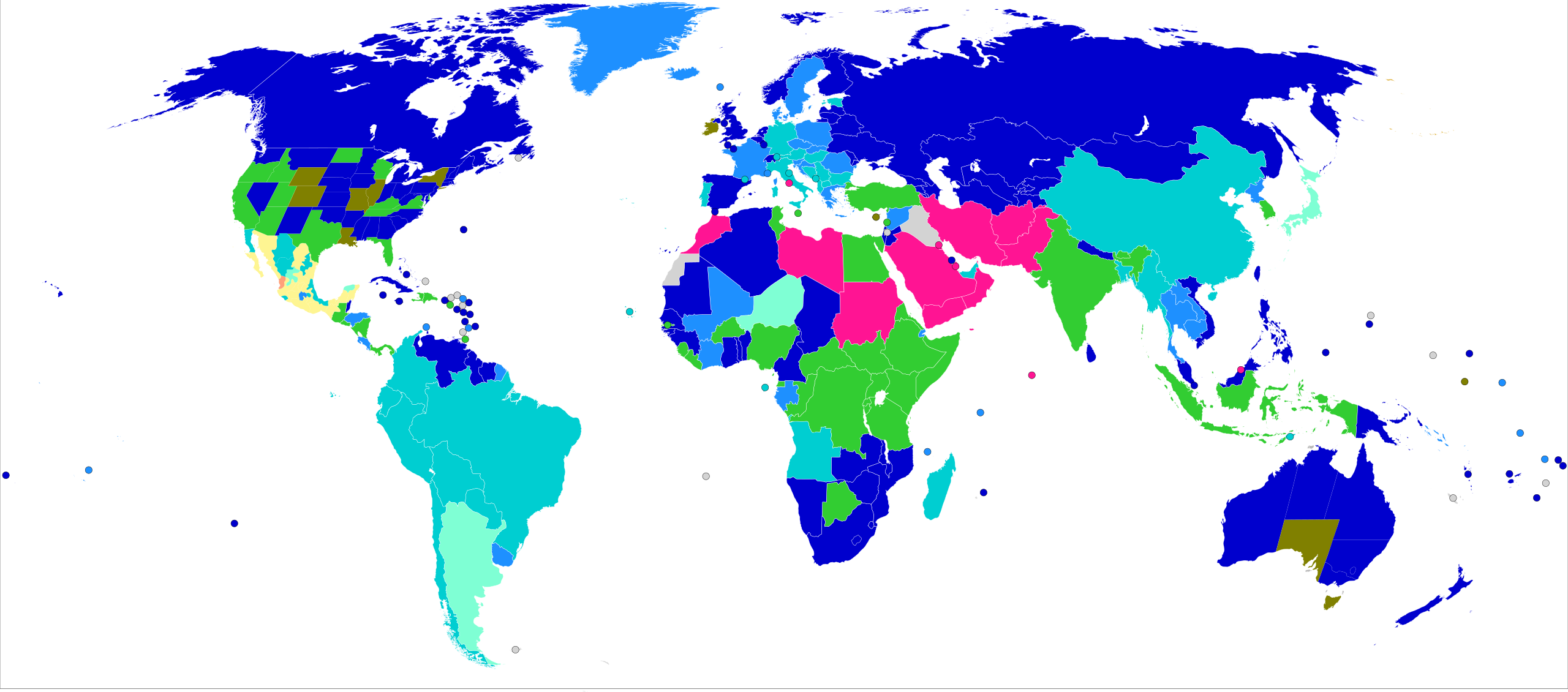Understanding the legal age of consent in Russia is essential for anyone seeking clarity on this sensitive topic. The legal age of consent refers to the age at which an individual is legally permitted to agree to sexual activities. In Russia, this topic is governed by federal laws that aim to protect minors from exploitation and abuse.
As societal norms and legal frameworks evolve, it is crucial to stay informed about the regulations surrounding the age of consent. This article delves into the specifics of Russia's laws, providing a clear understanding of the legal landscape and its implications.
By exploring the historical context, current laws, and international comparisons, we aim to shed light on this important issue. Whether you are a legal professional, educator, or simply someone interested in understanding the law, this guide offers valuable insights into the legal age of consent in Russia.
Read also:Jonny Lee Miller A Closer Look At His Versatile Career And Personal Life
Table of Contents
- Legal Definition of Age of Consent
- Russian Law and the Age of Consent
- Historical Context of Age of Consent in Russia
- Statutory Rape Laws in Russia
- Exceptions and Special Circumstances
- International Comparison of Age of Consent
- Enforcement of Age of Consent Laws
- Penalties for Violating Age of Consent Laws
- Public Awareness and Education
- Conclusion
Legal Definition of Age of Consent
The legal age of consent is defined as the age at which an individual is considered legally capable of consenting to sexual activities. This age varies significantly across countries and is influenced by cultural, social, and legal factors. In Russia, the legal age of consent is set at 16 years, as per Article 134 of the Russian Criminal Code.
It is important to note that this age reflects the legal threshold for consensual sexual activity. Any sexual activity involving individuals below this age may be considered a criminal offense, regardless of the minor's willingness to participate.
Key Aspects of Legal Definitions
- Age of consent laws are designed to protect minors from exploitation and abuse.
- These laws vary globally, with some countries having a lower or higher age of consent.
- In Russia, the age of consent aligns with many European nations, emphasizing the importance of safeguarding young individuals.
Russian Law and the Age of Consent
Russia's legal framework for the age of consent is outlined in the Russian Criminal Code. Article 134 explicitly states that sexual acts with individuals under the age of 16 are illegal, regardless of the minor's consent. This law applies to all forms of sexual activity, including intercourse, oral sex, and other intimate acts.
Additionally, the law prohibits the production, distribution, and possession of child pornography, reinforcing the protection of minors from sexual exploitation. These regulations are part of a broader effort to ensure the safety and well-being of young people in Russia.
Key Provisions of Russian Law
- Article 134: Criminalizes sexual acts with individuals under 16 years of age.
- Article 135: Prohibits the use of minors in pornography.
- These laws are strictly enforced to protect minors from abuse and exploitation.
Historical Context of Age of Consent in Russia
The concept of the age of consent has evolved over centuries, reflecting changing societal norms and legal perspectives. In Russia, the age of consent was historically lower, with earlier laws allowing for consensual sexual activity at a younger age. However, as awareness of child protection grew, the legal age was raised to its current threshold of 16.
This shift aligns with international standards and reflects a commitment to safeguarding young individuals from harm. By raising the age of consent, Russia demonstrates its dedication to protecting minors and promoting their welfare.
Read also:Rafael Silva The Rising Star In The World Of Mixed Martial Arts
Evolution of Age of Consent Laws
- Early Russian laws allowed for lower ages of consent, influenced by traditional and cultural practices.
- Modern laws have been revised to reflect contemporary understanding of child protection.
- The current age of 16 is supported by both domestic and international legal frameworks.
Statutory Rape Laws in Russia
Statutory rape refers to sexual activity involving an adult and a minor below the legal age of consent. In Russia, statutory rape laws are enforced under Article 134 of the Criminal Code. These laws apply regardless of the minor's consent, as individuals below the age of 16 are deemed legally incapable of consenting to sexual activities.
The enforcement of statutory rape laws is crucial in preventing the exploitation of minors. These laws serve as a deterrent to potential offenders and provide legal recourse for victims of abuse.
Key Features of Statutory Rape Laws
- Sexual activity with individuals under 16 is automatically considered statutory rape.
- These laws apply regardless of the minor's consent or the nature of the relationship.
- Penalties for statutory rape are severe, reflecting the seriousness of the offense.
Exceptions and Special Circumstances
While the legal age of consent in Russia is 16, there are certain exceptions and special circumstances that may influence the application of these laws. For instance, close-in-age exemptions may allow for consensual relationships between individuals who are close in age, even if one party is below the legal age of consent.
These exemptions are designed to address situations where both parties are near the age of consent and the relationship is consensual. However, such exemptions are strictly regulated and subject to legal scrutiny.
Examples of Exceptions
- Close-in-age exemptions may apply in cases where both parties are within a few years of each other.
- These exemptions are intended to prevent unnecessary criminalization of consensual relationships.
- However, any form of exploitation or abuse is strictly prohibited.
International Comparison of Age of Consent
The age of consent varies significantly across the globe, reflecting differing cultural, social, and legal perspectives. In Europe, the average age of consent is 16, with some countries setting it as low as 14 and others as high as 18. Russia's age of consent aligns with many European nations, underscoring its commitment to international standards of child protection.
Comparing Russia's laws with those of other countries highlights the importance of a standardized approach to protecting minors. By maintaining a consistent age of consent, Russia contributes to global efforts to combat child exploitation and abuse.
Global Age of Consent Overview
- European countries typically set the age of consent at 16, with some variations.
- International cooperation is essential in addressing cross-border issues related to child protection.
- Russia's laws align with global standards, emphasizing the importance of safeguarding young individuals.
Enforcement of Age of Consent Laws
The enforcement of age of consent laws in Russia is a critical component of protecting minors from exploitation and abuse. Law enforcement agencies actively investigate and prosecute cases involving violations of these laws, ensuring that offenders face appropriate legal consequences.
Public awareness campaigns and educational programs also play a vital role in reinforcing the importance of these laws. By educating the public about the legal age of consent and its implications, Russia aims to create a safer environment for young people.
Enforcement Strategies
- Law enforcement agencies prioritize the investigation and prosecution of age of consent violations.
- Public awareness campaigns help educate individuals about the importance of these laws.
- Collaboration with international organizations strengthens global efforts to combat child exploitation.
Penalties for Violating Age of Consent Laws
Violations of age of consent laws in Russia are met with severe penalties, reflecting the seriousness of these offenses. Individuals convicted of engaging in sexual activity with minors below the legal age of consent may face imprisonment, fines, and other legal consequences.
These penalties serve as a deterrent to potential offenders and provide justice for victims of abuse. By imposing strict punishments, Russia demonstrates its commitment to protecting minors and upholding the rule of law.
Types of Penalties
- Imprisonment for varying lengths, depending on the severity of the offense.
- Fines and other financial penalties may also be imposed.
- Offenders may face additional consequences, such as being placed on a sex offender registry.
Public Awareness and Education
Raising public awareness about the legal age of consent is essential in preventing abuse and exploitation. Educational programs and community initiatives play a crucial role in informing individuals about the laws and their implications. By fostering a culture of awareness and understanding, Russia aims to create a safer environment for young people.
Schools, community organizations, and government agencies collaborate to provide comprehensive education on this topic. These efforts emphasize the importance of respecting the legal age of consent and promoting the well-being of minors.
Education and Awareness Initiatives
- School programs educate students about the legal age of consent and its importance.
- Community initiatives promote awareness and understanding among adults and parents.
- Government agencies collaborate with international organizations to enhance global efforts.
Conclusion
In conclusion, understanding the legal age of consent in Russia is vital for anyone seeking clarity on this sensitive topic. The legal framework, historical context, and international comparisons provide a comprehensive overview of the laws governing this issue. By enforcing strict regulations and promoting public awareness, Russia demonstrates its commitment to protecting minors from exploitation and abuse.
We encourage readers to share this article and engage in discussions about the importance of the legal age of consent. By staying informed and promoting awareness, we can collectively contribute to a safer and more secure environment for young people. For further reading, explore additional resources and articles on this topic to deepen your understanding.

